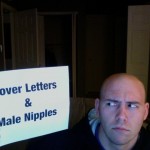 Everything is going just peachy. Not only have you answered every question with confidence, but your answers have shown you are more than qualified for the opening. However, this confidence only grows in you once answering another question successfully. Before each new question your leg shakes under the table in anticipation for the question that will drop the bomb on this entire interview. You were fired from your last job and you have absolutely no idea what to say about it. Finally, the question is asked , “So why did you leave your last company?”
Everything is going just peachy. Not only have you answered every question with confidence, but your answers have shown you are more than qualified for the opening. However, this confidence only grows in you once answering another question successfully. Before each new question your leg shakes under the table in anticipation for the question that will drop the bomb on this entire interview. You were fired from your last job and you have absolutely no idea what to say about it. Finally, the question is asked , “So why did you leave your last company?”
Are you prepared for a situation like this? Here are some tips to get you through this part of the interview:
- First thing I’ll mention is that those who were laid off have a free pass in this situation. Layoffs are well documented, and don’t always point to your performance. Simply state the reason for the layoff and provide a few more details about what happened and you should be on your way to the next question.
- Call your previous employer and try to find out just what will be said about you when a reference check is completed. It’s helpful if you can somehow match what will be said so it proves you are honest about the situation. Finding out you lied on an interview is about the fastest way to receive a rejection letter
- Never talk bad about your previous employer, manager, or co-workers. Maybe the reason you were fired was because of a poor relationship with your manager. Something you could say is, “My manager and I never saw eye to eye on how projects should be handled, but I did exactly what I was told and followed the processes he/she outlined. In the end, they felt our differences were still present so I was let go.” This shows you stuck it out and did not quit on the manager or company.
- Smile and stay confident throughout answering this question. Make it quick and to the point and move away from it. A terrified look on your face will not help the situation.
- Find ways to emphasize your positive work qualities. Possibly you were fired for a project that didn’t turn out in your favor. On this project you worked extra hours spending nights and weekends on it. You worked with internal and external customers on the project, and learned quite a lot. Talk about those things! Find ways to turn it around for you.
- Remember, this isn’t a trial! You do not need to defend yourself, stay focused on the fact that you are there to talk about your strengths. Seeing as they liked your resume, or maybe even your phone screen, the company already feels they could benefit from you.
Once the interview has concluded, make sure to evaluate the answers you gave regarding your termination. If the company doesn’t hire you, you can practice for when that question is asked again. Also, make sure to send a thank you note to the interviewer. Your overall positive attitude and eagerness in their position may surely outshine any negatives about the relationship you had at your previous employer.








